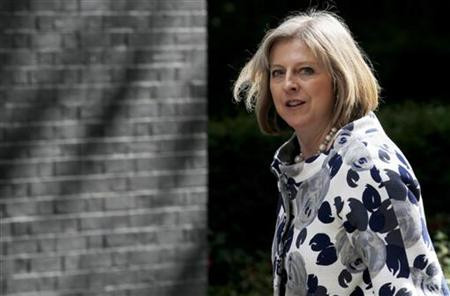Catgate, Manicheanism and Sensationalism: Where will the Cameron Government Stop?

Catgate, which derived from Theresa May's claim that a Bolivian immigrant avoided deportation due to his pet cat, has rocked the cabinet and the Home Secretary's credibility, with the judiciary even commenting on the affair.
Home Secretary Theresa May claimed Tuesday October 4, during the Conservative party's annual conference, that immigrants can easily take advantage of Britain's Human Rights Act, which she says should be abolished.
She proceeded to talk about "the illegal immigrant who cannot be deported because -- I am not making this up -- he had a pet cat," in her speech to the rally in Manchester.
Recently she also said in an interview with The Telegraph, "I'd personally like to see the Human Rights Act go because I think we have had some problems with it," she said.
"I see it, here in the Home Office, particularly, the sort of problems we have in being unable to deport people who perhaps are terrorist suspects. Obviously we've seen it with some foreign criminals who are in the UK," she also added.
Within minutes her comments provoked uproar with Justice Minister Kenneth Clarke a Conservative himself, doubting the veracity of her claim.
"I'll have a small bet with her that nobody has ever been refused deportation on the grounds of the ownership of a cat," he said.
As the debate over whether or not May's claim was actually veridict continued to intensify, the judiciary took the unusual step of issuing a statement saying there was not truth in the claim that the cat -- named Maya -- lay behind the 2009 ruling, writing "This was a case in which the Home Office conceded that they had mistakenly failed to apply their own policy - applying at that time to that appellant - for dealing with unmarried partners of people settled in the UK."
"That was the basis for the decision to uphold the original tribunal decision - the cat had nothing to do with the decision."
Despite the backlash, May's aids were still later on insisting she was right claiming the immigration judge who initially heard the case had said the cat had contributed to his conclusion that the man and his partner enjoyed a family life together in Britain.
Wednesday, Prime Minister David Cameron reportedly chose to back his home secretary's decision, while William Hague tried to play down the spat by saying "Theresa May and Ken Clarke are completely agreed about this policy in changing how we interpret Article 8 of the European Convention on Human Rights," during an interview on ITV television.
May's Home Office announced in July that it would review how Britain deals with Article 8, which guarantees "the right to a family life."
What is disturbing however is the assurance with which politicians tend to use a situation but and only pick out the facts that corroborate their ideas and opinions. May's argument is centred aroud the idea that even tighter regulations should apply when it comes to granting leave of sty. In her interview with the Telegraph, she points out to foreign criminals and terrorist but instead of providing her audience with concrete examples of those cases, she chose to give a distorted vision of a legal case. Of course implying that an immigrant cannot be deported because he had a cat is far more sensationalist that actually explaining the man had been studying in the UK and became involved in a long-term relationship.
Not long ago, in the aftermath of the riots in London, Cameron gave a press conference in which he talked about the need for morality to be restored and assured human rights would not get in the way of the government, almost as if he had a personal vendetta.
A few weeks ago however he triumphantly headed to Libya to celebrate human rights and insisted Gaddafi's lack of consideration for human rights led to his demise and justified the NATO operation.
Human rights are extremely important, or so says the government when it comes to China, Libya or even Syria, so it surprising that such as serious topic could so easily be turned into ridicule when it comes to domestic problems.
May had the opportunity to truly make her case regarding the scrapping of the Human Rights Acts, but she apparently instead chose to go for sensationalism rather than accuracy, which also stands for the people claiming immigrants and asylum seekers are granted leave of stay almost systematically. To regain credibility in view of the last few months in power, maybe the Cameron government need to understand that Manicheanism often stand in the way of good governance.
© Copyright IBTimes 2025. All rights reserved.





















